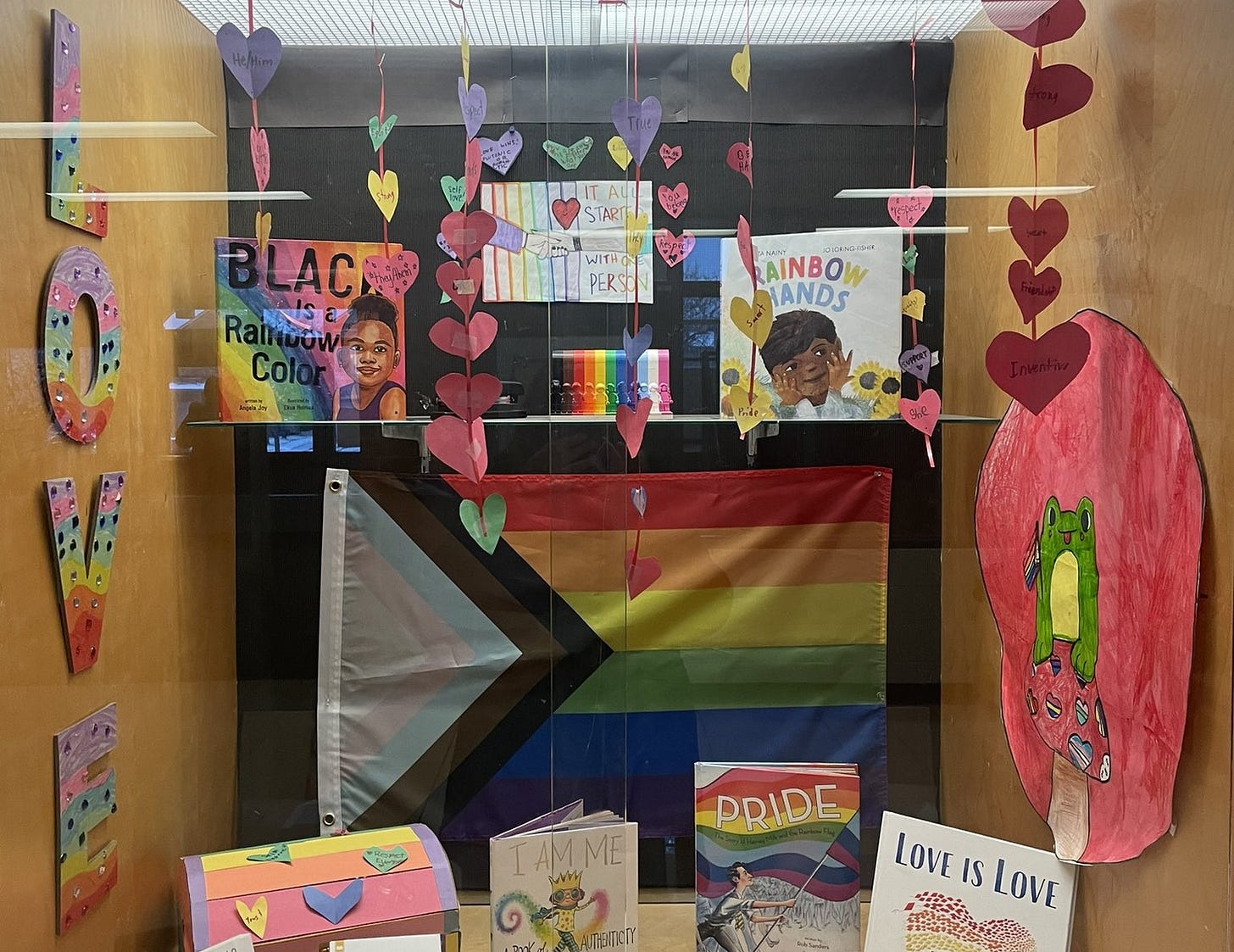Why I'm Glad My School Wasn't Covered in Pride Flags When I Came Out
How is any of this good for kids?
In my home province of Alberta, Canada, teachers are encouraged to cover their walls with pride flags and other symbols. As a lesbian woman, I am so thankful this wasn’t the case when I was coming out of the closet as a teen.
When people try to tell me that Alberta is a socially conservative, homophobic, transphobic place, I laugh, and I almost want to say, “I wish.” We could actually use a bit of that rumored social conservatism.
Instead, we have a province that enthusiastically adopted the SOGI 1 2 3 program which teaches kids that everyone has a sexual orientation and gender identity, including children.
“SOGI” stands for “sexual orientation and gender identity” and “1 2 3” stands for the steps to implement “SOGI-inclusive education.” According to the SOGI-Inclusive Classroom Checklist, this should involve making sure that “the posters and visual representations on classroom walls reflect diverse sexual orientations and gender identities.”
In other words: put up a bunch of pride flags …




